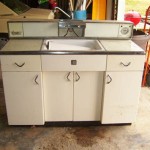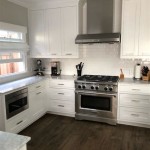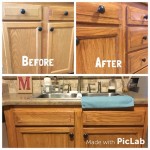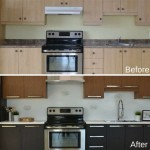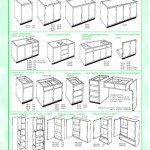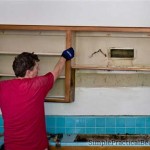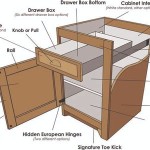Restoring Your Kitchen Cabinets: A Guide to Essential Aspects
Kitchen cabinets form the backbone of any kitchen's functionality and aesthetics. Over time, however, these cabinets may show signs of wear and tear, losing their original charm and efficiency. If your kitchen cabinets are in need of a makeover, restoration can provide a cost-effective and sustainable solution. By carefully considering essential aspects of cabinet restoration, you can breathe new life into your kitchen without breaking the bank.
1. Assess the Condition of Your Cabinets
Before embarking on a restoration project, thoroughly assess the condition of your cabinets. Determine the extent of damage, discolouration, or hardware issues. This evaluation will help you determine if restoration is necessary or if replacement is a better option. Focus on evaluating the cabinet's structural integrity, the functionality of doors and drawers, and the overall surface condition.
2. Choose the Right Restoration Method
There are several restoration methods available, each with its own pros and cons. These include:
- Refinishing: Retaining the original cabinet doors and frames while refinishing their surfaces with new paint or stain.
- Refacing: Replacing cabinet doors and drawer fronts with new materials while keeping the existing cabinet boxes.
- Repainting: Simply updating the existing cabinet paint colour without altering the cabinet structure or hardware.
3. Select Durable Materials
The materials you choose for your restored cabinets will significantly impact their longevity and aesthetics. For cabinet doors and drawer fronts, consider solid wood, veneer, or high-quality laminate. These materials offer durability, longevity, and a wide range of design options.
4. Pay Attention to Hardware
Cabinet hardware, including hinges, handles, and knobs, can significantly enhance the overall look of your cabinets. When selecting hardware, consider the style of your kitchen, the functionality of the cabinets, and the durability of the materials.
5. Ensure Proper Ventilation
Adequate ventilation is crucial during cabinet restoration, especially when using paints or stains. Ensure proper airflow by opening windows and doors and setting up fans to circulate air throughout the work area. Proper ventilation reduces the risk of fumes and odours accumulating in your kitchen.
6. Protect Your Floors and Countertops
To prevent damage to your floors and countertops, cover them with drop cloths or plastic sheeting during the restoration process. This protective layer will shield your surfaces from paint spills, dust, and other potential hazards.
7. Consider Professional Assistance
While some aspects of cabinet restoration can be DIY projects, complex or extensive restorations may require the expertise of a professional. A professional cabinet restorer will have the necessary skills, equipment, and experience to ensure a high-quality restoration that meets your specific requirements.
Conclusion
By following these essential aspects of kitchen cabinet restoration, you can restore the beauty and functionality of your kitchen without breaking the bank. Whether you choose to refinish, reface, or repaint your cabinets, careful consideration of these key elements will guide you towards a successful restoration project that will enhance your kitchen for years to come.

How To Refinish Cabinets Like A Pro

Cabinet Refinishing Guide

Cabinet Refinishing N Hance

How To Re Wood Cabinets Trends Finishing

Refinishing Your Kitchen Cabinets Instead Of Replacing Them

Refinishing Kitchen Cabinets Modern Refacing Made Easy Wisewood

Cabinet Restoration Experts Kitchen Makeovers

Cabinet Restoration Before And After Kitchen Cabinets Kitchenisland Generalfinishes Kitchencabinets Cabine Refinishing

Refinish Kitchen Cabinets With Kilz Restoration Primer

How To Refinish Kitchen Cabinets Diy
Related Posts

